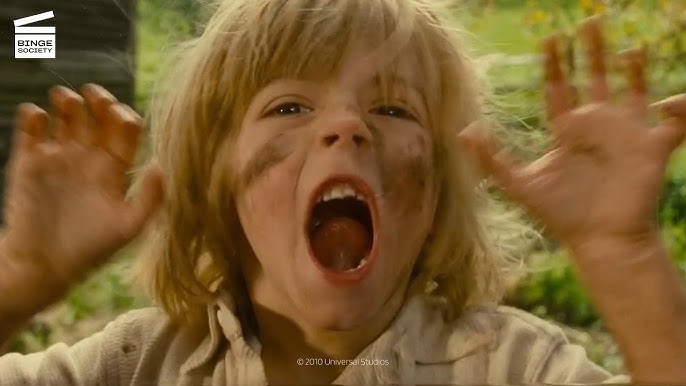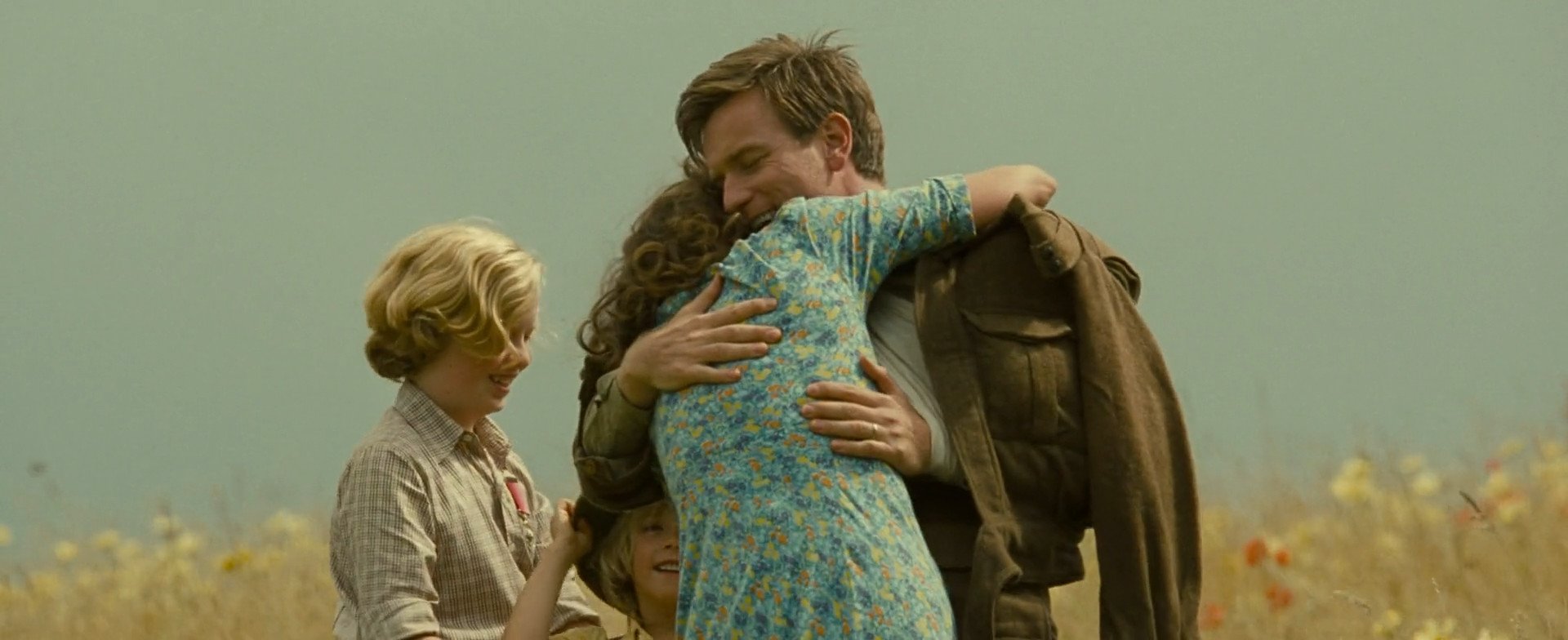NANNY McPHEE RETURNS

NANNY McPHEE RETURNS: THE AGE OF KINDNESS (2026)
Director: Kirk Jones
Starring: Emma Thompson
Genre: Family, Fantasy, Drama
Rating: ★★★★★
In an increasingly chaotic and fast-paced world, where the cacophony of technology and digital screens drowns out the simple joys of life, a powerful force for good arrives in the most unexpected of ways. Nanny McPhee Returns: The Age of Kindness (2026) takes viewers on an enchanting, heartfelt journey filled with magic, lessons of empathy, and the kind of transformative wisdom that only Nanny McPhee can impart. This new chapter in the beloved Nanny McPhee series explores the timeless value of kindness in a world where the very essence of compassion seems to be fading into the background.
Plot Overview:
The story opens in a bustling, modern world where technology rules and family bonds are fraying at the edges. The Harper children, once a lively, joyful bunch, have become absorbed in their own individual worlds. They are constantly distracted by gadgets and screens, unable to connect with each other in any meaningful way. Laughter and love seem like distant memories as they go about their daily lives, living in an era where time speeds by faster than they can keep up. Their mother, once a source of warmth and care, struggles to maintain any semblance of order in the home.
The house is full of noise, but there’s no real communication. The children bicker, the house is in disarray, and the days feel long and uneventful. Their mother, overwhelmed by the demands of modern life, feels as if she is failing them. She tries her best to keep everything running smoothly, but it seems like the harder she tries, the more things slip through her fingers. She worries about her children’s future, about how they will grow up in a world that seems to place more importance on appearances and success than on kindness, empathy, and love.
Enter Nanny McPhee.
As if by magic — or, perhaps, because of the timeless power that Nanny McPhee wields — she knocks at the door one fateful evening, and a quiet calm falls over the Harper household. Her appearance is just as it always was: firm, but comforting; strict, but full of wisdom. In her trademark cloak and top hat, she seems every bit the formidable nanny of legend, yet there is a noticeable difference this time — Nanny McPhee’s power, once so strong, is now fading. Her magic isn’t as potent as it used to be, and she knows that time is running out for her to make a difference. This will be her last mission, a final task before she fades into the world of forgotten enchantments.
With one tap of her cane, the once-chaotic home begins to change. The furniture shifts in surprising ways, tables dance, and imaginations are reignited. But Nanny McPhee is not just there to fix the outward disorder. Her true goal is much more profound: to teach the Harper children and their family the power of kindness, to help them understand that beneath the noise of the world, there is a deeper connection that binds them all together.
However, as Nanny McPhee works her magic to restore harmony and joy to the Harper household, she struggles with the knowledge that her powers are dwindling. There’s a sense of urgency in her work; she must impart her wisdom before she is no longer able to do so. As her magic slips away, Nanny McPhee begins to realize that the world itself needs to believe in kindness again, and not just the Harper family. Her final mission is not just to teach a few children, but to offer the world a reminder of what really matters — love, empathy, and connection.
In a series of whimsical yet deeply moving sequences, Nanny McPhee teaches the Harper children essential lessons. Through games, humor, and surprising acts of magic, she shows them that kindness isn’t just about being nice — it’s about understanding the needs of others, listening deeply, and offering help without expecting anything in return. She teaches them that real power lies not in dominance or strength, but in compassion and humility. The transformation is gradual but undeniable — the children begin to connect, not only with each other but with their mother, rediscovering the love and laughter that had been buried under the weight of their busy, digital lives.
The emotional core of the film lies in the way Nanny McPhee’s lessons challenge the modern world’s obsession with instant gratification and superficiality. The Harper children are taught not only to value the intangible gifts of kindness and empathy but also to appreciate the quiet moments that so often go unnoticed in today’s fast-paced world. As Nanny McPhee’s magic grows weaker, the children learn that the real magic lies within themselves — in their ability to care for others and to change the world with their actions, no matter how small.
Characters and Performances:
Emma Thompson returns as the enchanting Nanny McPhee, a role that she has made her own over the years. Thompson brings her signature warmth, wit, and wisdom to the character once again, adding layers of depth to a role that is both strict and nurturing. As Nanny McPhee’s magic wanes, Thompson’s portrayal becomes even more poignant, as we see a character who is aware of the passing of time, yet determined to make a final, lasting impact. Her performance is a beautiful blend of humor, heart, and subtle melancholy — a reminder of the power of kindness in a world that so often overlooks it.
The Harper children, whose personalities evolve throughout the story, are brought to life by an ensemble of talented young actors. Each child is distinct, from the spirited eldest sibling to the quiet, introspective younger ones. They reflect the modern-day struggle of children growing up in an increasingly digitized world, and their transformation throughout the film is heartwarming and believable. The dynamic between the siblings changes, and their newfound sense of camaraderie and empathy is a testament to the impact of Nanny McPhee’s teachings.
The mother, played with a delicate balance of exhaustion and hope, is the emotional anchor of the film. She is a character who represents the modern parent — overwhelmed, distracted, but deeply loving. Her journey mirrors that of her children’s, as she learns to reconnect with her own sense of empathy and joy, ultimately realizing that the lessons of kindness and love are just as vital for her as they are for her children.
Themes and Symbolism:
Nanny McPhee Returns: The Age of Kindness explores several key themes that are particularly relevant to contemporary audiences. One of the most prominent themes is the loss of human connection in the digital age. As the world becomes more fast-paced, interconnected, and obsessed with technology, the film poignantly reminds us that true connection and empathy are at the heart of what it means to be human.
Another central theme is the power of kindness as a force of transformation. The film underscores the idea that kindness isn’t just a passive virtue — it is an active, transformative force that can change hearts, mend relationships, and heal wounds. Through Nanny McPhee’s guidance, the characters learn that kindness can break down barriers, whether between siblings, parents, or even strangers.
Additionally, the movie touches on the theme of personal growth and self-discovery. As Nanny McPhee’s powers diminish, the children and their mother come to realize that they are the ones who must carry the torch of kindness moving forward. The transformation isn’t just about magical intervention; it’s about understanding the value of empathy and taking personal responsibility for the way they treat others.
Visuals and Cinematography:
The film’s visuals are enchanting, with vibrant and whimsical settings that reflect the magical nature of Nanny McPhee’s world. From the colorful, bustling household to the quiet, magical moments that take place in the garden or around the dinner table, the film is full of beautiful, detailed set pieces that transport the audience into a world where magic is real, but kindness is the true force that drives change.
The cinematography captures both the wonder and the subtle emotional depth of the story. There are moments of grand magic, with tables dancing and objects transforming in delightful ways, but the film also takes time to focus on the quieter, more intimate moments between characters. The close-ups on the children’s faces as they experience their transformation are particularly poignant, conveying the power of their emotional growth.
Final Verdict:
Nanny McPhee Returns: The Age of Kindness is a magical, deeply moving film that blends whimsy with wisdom, offering both children and adults a heartfelt reminder of the importance of kindness in today’s world. With Emma Thompson once again delivering a remarkable performance as the beloved nanny, the film invites audiences to reflect on the values that truly matter in an age where technology often drowns out the simple joys of life. Whimsical, wise, and emotionally resonant, it’s a story that will touch the hearts of all who believe in the power of kindness.











